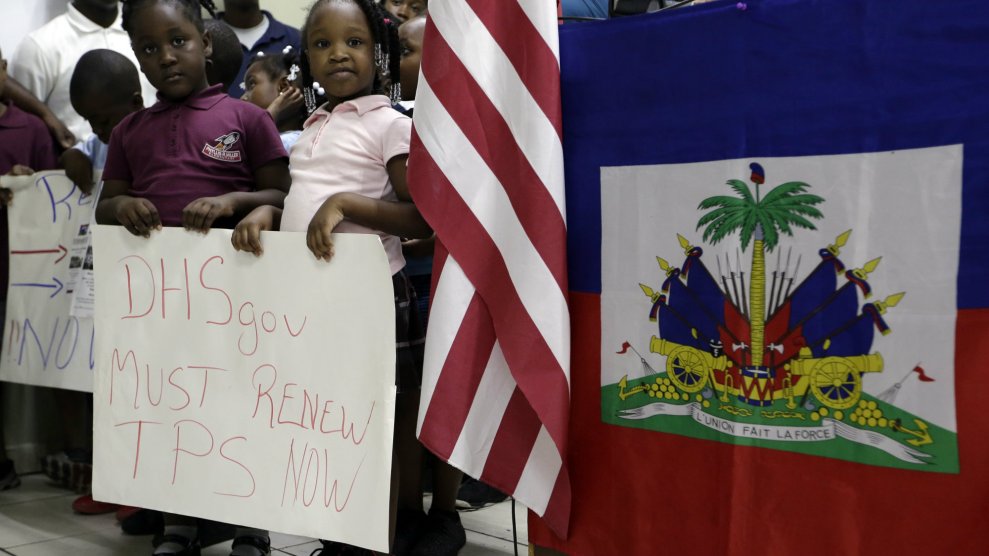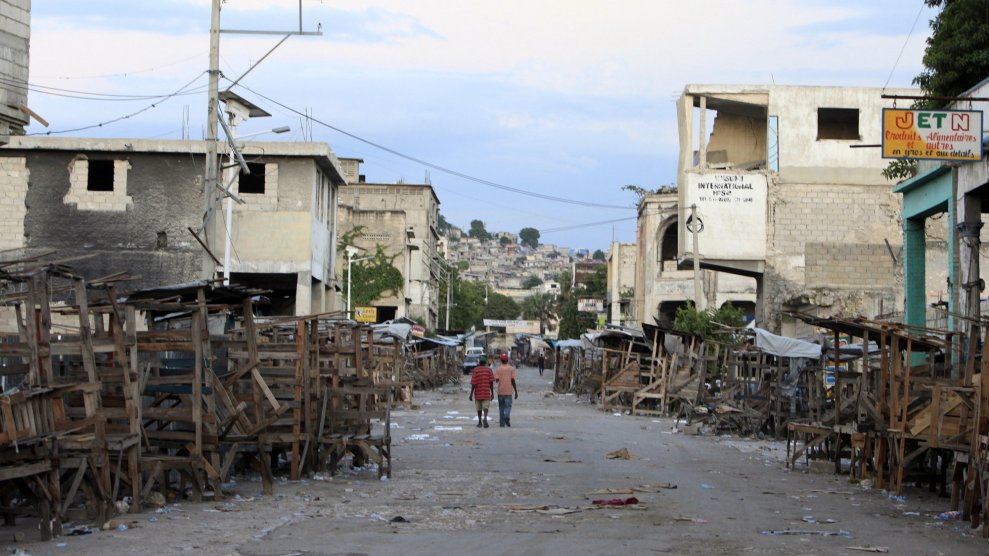
Lynne Sladky/AP
The Department of Homeland Security announced Monday evening that more than 50,000 Haitian immigrants living in the United States will lose the status that protects them from deportation. As of July 22, 2019, they’ll be forced to return to Haiti or risk living in the United States as undocumented immigrants in an era of heightened fear.
Temporary protected status is granted by DHS to foreign nationals whose home countries are dealing with humanitarian crises such as war or, as in Haiti’s case, a natural disaster. It’s usually renewed in 6 to 18-month intervals.
A 7.0 magnitude earthquake struck the small Caribbean country in 2010, killing an estimated 300,000 people and leaving millions homeless. President Barack Obama granted the special status to Haitians the following year.
Haitians’ TPS had been continually renewed since then, but in May, then-DHS head and now Trump chief of staff John Kelly announced that their status, which was coming up again for renewal in July, would only be renewed for six months and reevaluated in November.
Earlier this month, DHS terminated TPS for Nicaraguan immigrants, giving the 2,500 TPS holders until January 5, 2019 to leave the country.
Immigration activists and even members of Congress have cautioned the Trump administration against sending Haitian immigrants back. Since the earthquake, Haiti has been dealing with an ongoing cholera epidemic, chronic poverty, and underemployment, exacerbated by the ongoing recovery from Hurricane Matthew which killed hundreds in 2016. Proponents of extending their status also argue that Haitian TPS holders are leading productive lives in the US; according to a study by the Center for Migration Studies, 80 percent are employed, more than 6,000 have a mortgage, and 27,000 of their children are US citizens.
















